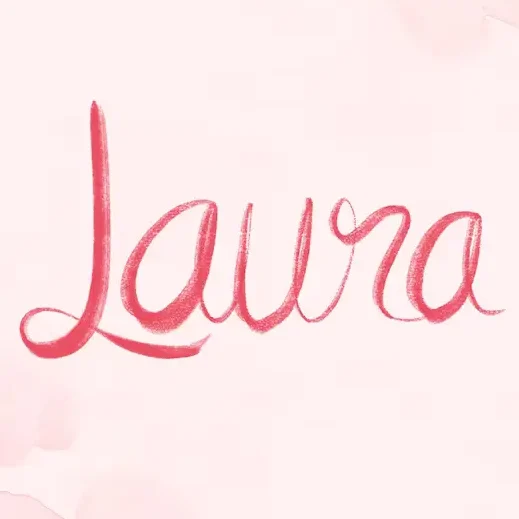What’s happening
The annual announcement of Academy Award nominations invariably sets off a wave of celebration for the films and artists who have been recognized and sniping over those who have been left out. This year, the anger over Oscar snubs hit a rare level of intensity when it was revealed that two key figures behind Barbie — director Greta Gerwig and its producer and star Margot Robbie — had not been nominated for their contributions to 2023’s most successful film.
The academy didn’t ignore Barbie. The movie received eight total nominations, including Best Picture, Best Adapted Screenplay and nods for supporting cast members Ryan Gosling and America Ferrera. But the omission of Gerwig and Robbie from the director and actress categories struck many as not only a surprise, but as a startling oversight that vindicated the film’s central message about the struggles women face in a world dominated by men.
Both Gosling and Ferrera released statements expressing their disappointment at the nominations, with Gosling calling Gerwig and Robbie “the two people most responsible for this history-making, globally-celebrated film.” Social media was flooded with posts highlighting the irony of the film’s most noteworthy male cast member being recognized while the women who served as its creative force and portrayed its iconic main character were not. Even former Secretary of State Hillary Clinton felt compelled to weigh in to assure Gerwig and Robbie that they are “much more than Kenough.”
Why there’s debate
The nature of art means there’s no correct answer to the question of whether Barbie (or any film) “deserves” awards recognition. But it’s clear from the intensity of the response to Barbie’s snubs that debate about the movie goes far deeper than opinions on the quality of Gerwig’s and Robbie’s work.
In the eyes of many critics, the academy’s decisions highlight the steep hill women have to climb to be considered as worthy as their male counterparts, not just in film, but throughout our society. They argue that it also shows how art made by and for women just isn’t treated with the same seriousness as gritty male-centric dramas that tend to dominate awards shows.
But others, including both proponents of feminism and some of its strongest skeptics, say it’s unhealthy to treat any single piece of art as a proxy for such a significant and complicated movement. They argue that the academy was correct to judge Barbie on its creative merits, rather than on what it “represents.”
Some film industry watchers have made the case that the reaction to Barbie’s snubs is an indication of how effective the marketing around the movie was at convincing people that it was about more than just a means of making money for the studio — to the point that audiences are treating a film that made more than $1.4 billion as some sort of underappreciated masterpiece.
What’s next
Some Oscar experts believe anger over Gerwig’s and Robbie’s omissions could boost Barbie’s chances of winning the awards it was nominated for. That said, Christopher Nolan’s epic biopic Oppenheimer is still widely expected to take home Best Picture when the winners are announced at the Oscars telecast on March 10.
Perspectives
The nominations show the unfair standard women are held to
“Margot and Greta – the two most integral women of Barbie – being snubbed can only, in my opinion be down to rank sexism, plus a whiff of snobbery.” — Emily Maddick, Glamour UK
It’s OK that the academy didn’t think Gerwig and Robbie deserved to be nominated
“The issue is not that Barbie is too female-focused, too much of an audience-pleasing blockbuster, or too pink. It isn’t ‘too’ anything. The film just apparently wasn’t enough for Academy voters. … It’s not a snub, they just didn’t make the cut.” — Samantha Bergeson, IndieWire
The Barbie snubs show how little ground has really been made after so many years
“It’s tempting to imagine that it feels fine to the Oscars voters to have one woman represented in the directing category: See, they didn’t shut women out! But the history of the Academy Awards is crowded with examples of female directors being denied the nomination.” — Sara Stewart, CNN
Feminists turned Barbie into a stand-in for their movement that can’t possibly be criticized
“Let’s note that by touting their film as pro-woman and feminist, the makers of Barbie attempted to critic-proof it. In the eyes of a lot of people — almost all on the political left — to criticize the film itself was to criticize women.” — Jim Geraghty, National Review
The film’s shallow vision of feminism is reflected in anger over its supposed snubs
“Barbie’s snubs are disappointing to some. Sure. But I’d argue that the out-of-proportion outrage fans are feeling highlights the film’s failure to convey a core tenet of feminism to its audience: A personal slight against some high-profile, privileged (white) women is not an affront to the gains of womanhood overall.” — Kady Ruth Ashcraft, Jezebel
The anger isn’t just about Barbie, but also all of the overlooked female-led art that came before it
“Stories that center on death and/or mass murder, which fill most of the director category, have a certain level of tension and drama built in, and the film academy has a modern history of valuing, at least when it comes time for awards, movies that are tense and dramatic over anything bright and shiny. Even when the bright and shiny is also deeply moving and brilliant.” — Mary McNamara, Los Angeles Times
As a culture, we’ve become far too personally attached to mainstream art
“Today we venerate what is popular. We recognize that we are one in an army of consumers, and this knowledge conditions our experience of culture. In commercially successful art we find a sense of belonging. We take part in something larger than ourselves.” — Natasha Degen, New York Times
We’ve lost our ability to tell when we’re being manipulated by corporate marketing
“The bigger tragedy here may be that Barbie is being decorated at all. Barbie was an actual two-hour toy commercial backed by Mattel that, by its very nature, could never offer us radical ideas about feminism and power in society.” — Zeeshan Aleem, MSNBC

Laura Davis is an entertainment aficionado who delves into the glitz and glamour of the entertainment industry. From Hollywood to Broadway, she offers readers an insider’s perspective on the world of movies, music, and pop culture.







